Iran urges pressure on US to lift sanctions on quake-hit Syria
Iran’s Foreign Ministry has called on the international community to exert pressure on the United States in order to lift its sanctions on quake-hit Syria to facilitate the delivery of international aid.
Spokesman Nasser Kan’ani said nine years of war have led to a special situation in Syria, which was hit by a deadly 7.8-magnitude earthquake on Monday that killed at least 1,444 Syrians. The devastating quake also jolted Turkey, killing over 3,000.
“The important point is that different countries must exert pressure on the US government to lift the cruel siege of Syria so that international humanitarian aid can be delivered to the quake-stricken people of Syria without any obstacles in the shortest possible time,” Kan’ani said in an interview with Mehr news agency.
The United States invaded Syria in 2014 at the head of scores of its allies under the pretext of fighting the Daesh Takfiri terrorist group. The US-led coalition has maintained its presence, despite the fact that it was Syria and its allies, including Iran and Russia, who defeated the Takfiri terrorist outfit in late 2017.
The US government has also imposed sweeping economic sanctions against Syria amid the Arab nation’s uphill battle for reconstruction and recovery.
The restrictive measures have blocked imports of essential goods, affecting the Syrian people’s access to medical equipment, food, heating, gas, and electricity.
Kan’ani once again expressed his sympathy with the Turkish and Syrian governments and nations and reiterated Iran’s readiness to send aid relief to the two countries.
“We hope that the international community will send humanitarian aid quickly and effectively to the two countries, especially to Syria as a country facing special conditions,” the Iranian spokesman said.
The quake struck at 04:17 am local time (0117 GMT) at a depth of about 17.9 kilometers (11 miles) and was followed by a 6.7-magnitude aftershock 15 minutes later, according to the US Geological Survey.
Turkey’s AFAD emergencies service center put the first quake’s magnitude at 7.8.
Freezing winter weather added to the plight of the thousands left injured or homeless and hampered efforts to find survivors.
The huge earthquake across a swathe of Turkey and northwest Syria brought down whole apartment blocks in Turkish cities and piled more devastation on millions of Syrians displaced by years of war.
First Iranian plane carrying aid lands in Damascus
Meanwhile, the first Iranian plane carrying humanitarian aid landed at Damascus International Airport in the early hours of Tuesday to help the quake-stricken Syrian people.
The plane contained 45 tons of medical, food and sanitary aid.
Iran’s Ambassador to Damascus Mehdi Sobhani, who was present at the airport, said Tehran would send more planes carrying aid relief to Syria.
In separate messages to the presidents of Turkey and Syria on Monday, Iranian President Ebrahim Raeisi extended his condolences to his counterparts over the tragic incident.
Raeisi expressed Iran’s readiness to provide immediate relief aid to the two friendly countries.
Iranian Foreign Minister Hossein Amir-Abdollahian also sympathized with Turkey and Syria in separate phone conversations on Monday. He voiced Iran’s "full readiness" to help the two countries.
Syrian officials hail Iran’s humanitarian aid
Syria’s Assistant Health Minister, Ahmad Damiriah, thanked Iran and Iraq for their humanitarian aid, saying that the quake inflicted enormous damage to the provinces of Aleppo and Latakia.
He said Syria grappled with war for long years and is now suffering from economic sanctions, emphasizing that these issues affect the process of crisis management after the quake.
Rescue teams are working to help the quake-hit people but bad weather conditions caused difficulties, he explained.
Syria's deputy transport minister also expressed his gratitude to Iran over the relief aid.
Hundreds of Greeks protest US warship arrival in Crete
Iran warns Trump against decisions based on false information
Iran embassy rejects 'fabricated' French reports on domestic affairs
Trump’s military buildup against Iran on Netanyahu’s behalf is a gambit doomed to fail
Iran dismisses US 'big lies' on nuclear, missile programs
CIA‑founded NGO admits deploying Starlink satellites for Iran riots
VIDEO | French comedian targeted by Rothschild and Epstein for his shows on Palestine
Iranian commanders warn US not to mistake it for other nations


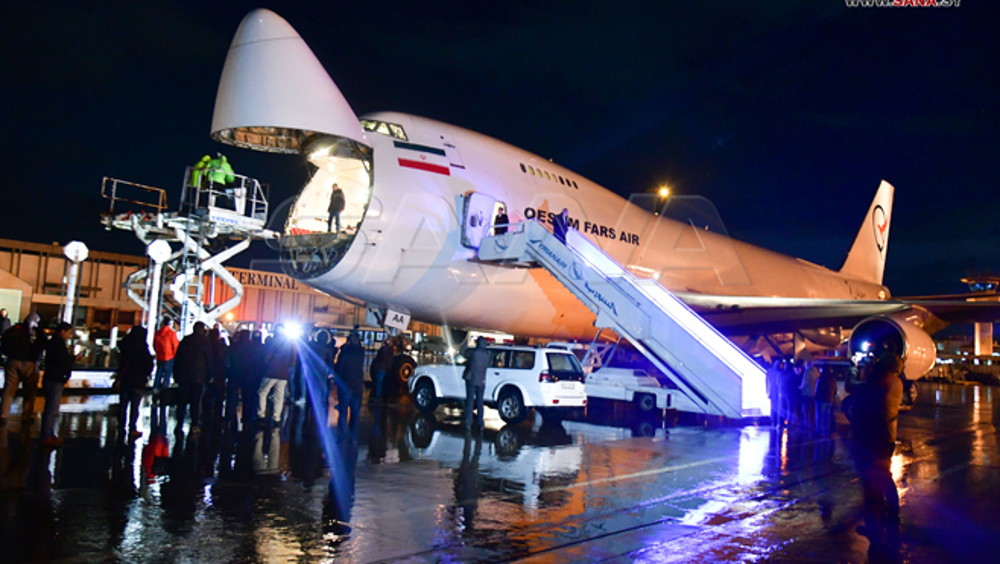
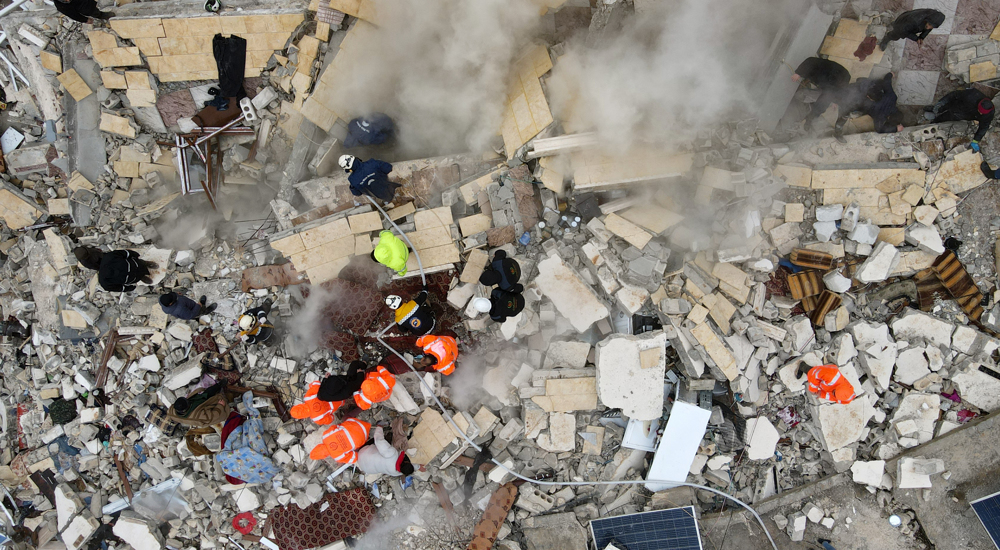
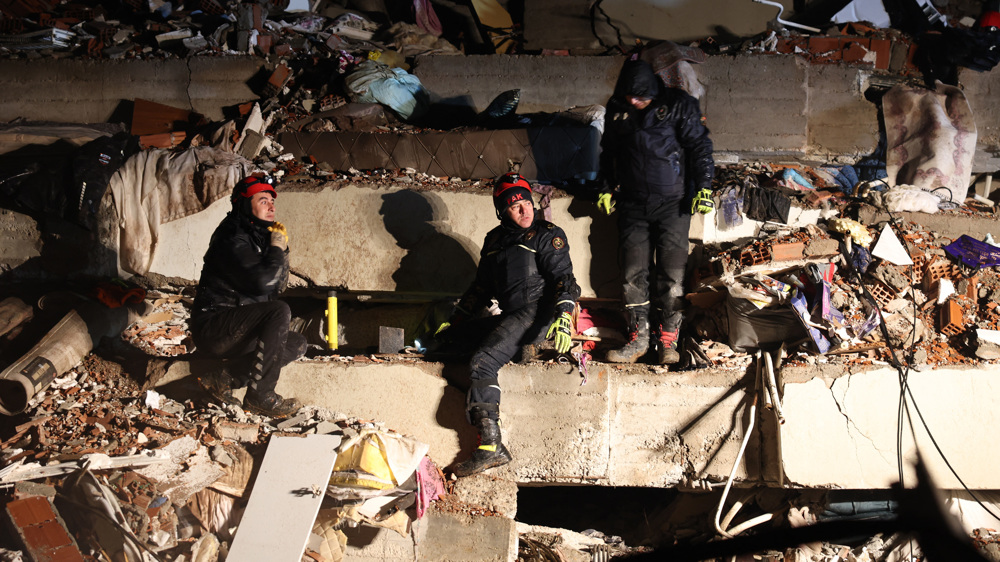
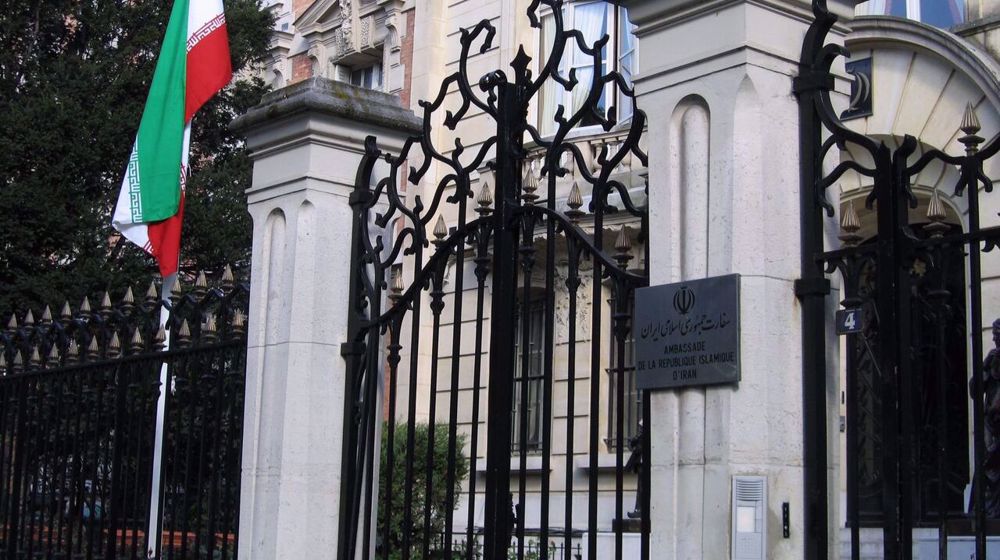

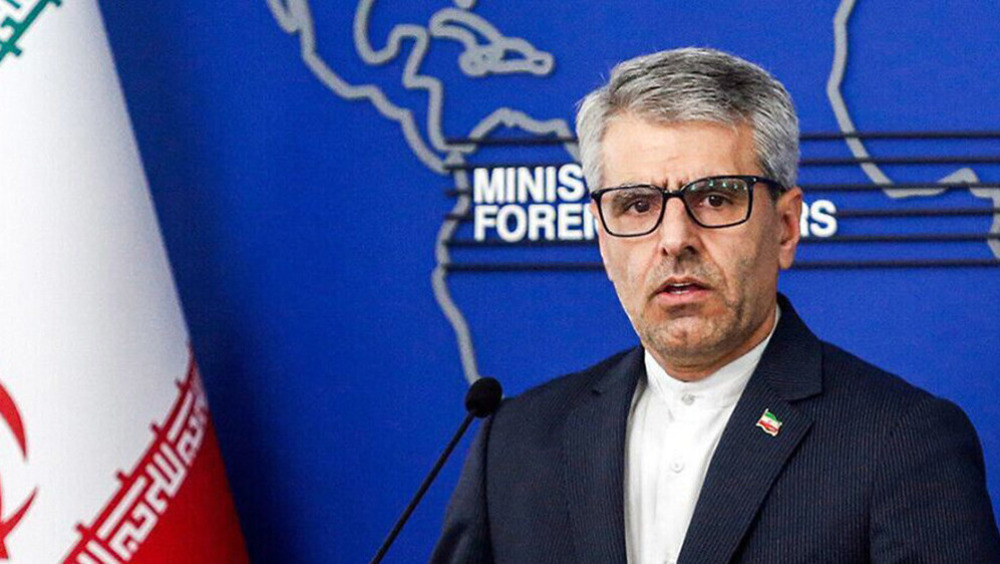



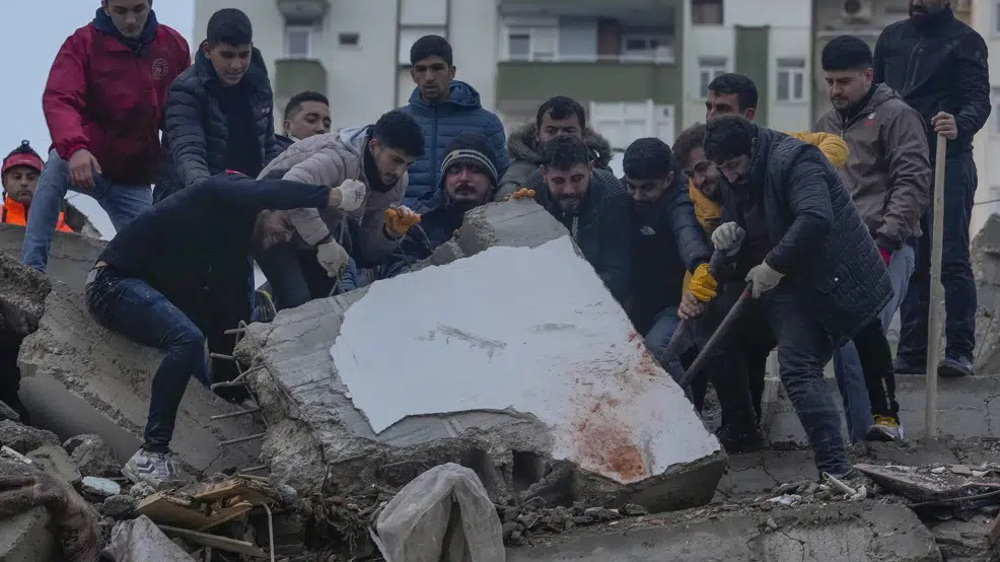
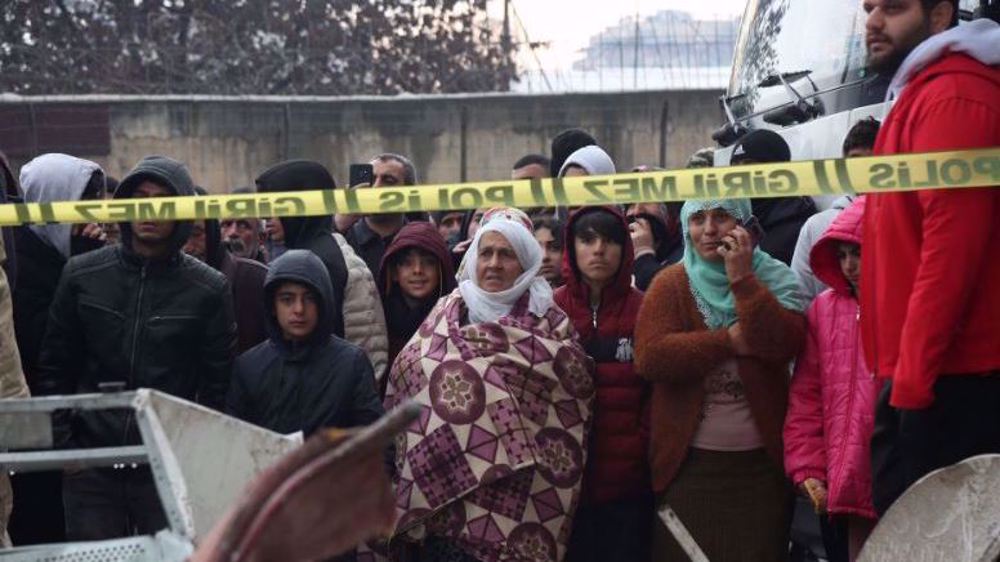
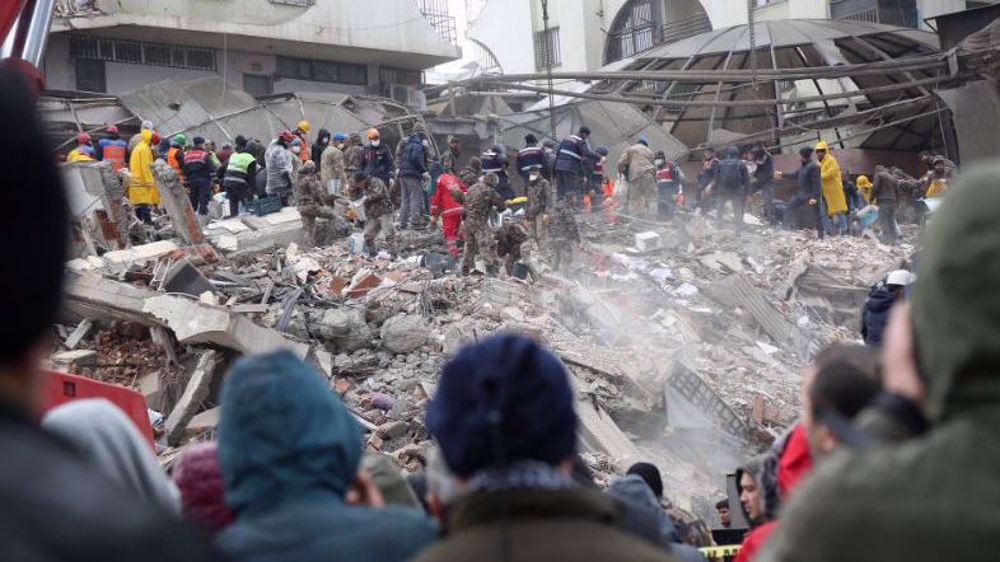

 This makes it easy to access the Press TV website
This makes it easy to access the Press TV website